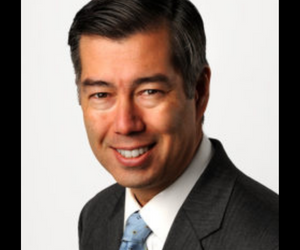News You Can Use: Recent Studies That May Change Your Practice
CALCIUM AND VITAMIN D RECOMMENDATIONS ARE CHANGING
Our long-standing emphasis on calcium and vitamin D supplementation is currently being called into question. In the case of calcium supplementation, there are downsides that in many cases may outweigh the benefits. In the case of vitamin D supplementation, we are not seeing obvious downsides. However, neither are we seeing enough benefit to make a strong case for advocating for supplementation.
There are cases where calcium supplementation is indicated. This includes people who follow a vegan diet, have lactose intolerance, or have osteoporosis. As well as people who have digestive diseases that interfere with the absorption of calcium.
However, for patients who aren’t at obvious risk for inadequate calcium, the risks of supplementation may exceed the benefits. Too much calcium can mean an increased risk of heart attack, stroke, muscle pain, mood disorders, and kidney stones.
Vitamin D supplementation does not have a strong downside risk. However, current research is telling us that the benefits do not seem as strong as we once thought. We need vitamin D, but the issue is, how much do we need? In the past we felt that people with calcium levels below 30 ng/mL would need supplementation. However, current research is causing us to rethink what normal levels of vitamin D are. Current research indicates that a much smaller percentage of women will actually benefit from vitamin D supplementation.
BREAST CANCER SCREENING GUIDELINES HAVE BEEN UPDATED
The American Cancer Society has been studying which approach to breast cancer screening improves health, avoids harm, and eliminates wasteful practices. The current recommendations from the American Cancer Society for average-risk women are: discuss the potential benefits (small reduction in breast cancer mortality) and harms (high false-positive rate, over-diagnosis) of screening with women aged 40-44 and perform annual mammograms in women who opt for screening; perform mammography yearly in women aged 45-54; for those women 55 and older, every 2 years with the choice to continue yearly. Screening should continue every two years as long as a patient is in good health and has a life expectancy of at least 10 years. I now follow these guidelines as they are clear, easy, and evidence based.
BREAST DENSITY AND THE NEED FOR ADDITIONAL SCREENING
Twenty-one states in this country require that patients be notified that they need to talk with their health care provider if tests show that they have increased breast density. However, the new data suggest that other risk factors in conjunction with breast density should determine who should get additional testing. These other risk factors would include all the traditional risk factors for breast cancer such as a strong family history of breast cancer, a previous breast biopsy, early menarche or late menopause.
INDIVIDUALIZE THE LENGTH OF TIME A WOMAN IS ON HORMONE REPLACEMENT THERAPY
New guidelines from the American Congress of Obstetricians and Gynecologists (ACOG) strongly support an individualized approach to how long an older woman should be on hormone replacement therapy (HRT). Some women have troubling and persistent symptoms, such as hot flashes, well into their 60s. If a woman has no contraindications for HRT, such as a family history of breast cancer or diabetes, an arbitrary stopping time doesn’t make sense.
GENETIC TESTING IS VALUABLE FOR ADJUVANTCHEMOTHERAPY
A new study validates the use of genetic testing for determining who will benefit from getting adjuvant chemotherapy. Initially, the recommendation was that all women should get adjuvant chemotherapy. Genetic tests can be conducted to determine who will benefit and who can be spared chemotherapy.
Search Articles
Latest Articles
Healing Ukraine’s Hidden Wounds: AI and Women’s Organizations Offer Hope
https://foreignpress.org/journalism-resources/healing-ukraines-hidden-wounds-ai-and-womens-organizations-offer-hope Publication –foreignpress.org
Who’s Leading the Digital World? Surprise—It’s Estonia
https://foreignpress.org/journalism-resources/whos-leading-the-digital-world-surpriseits-estonia Publication –foreignpress.org
United Nations Women’s Peace & Humanitarian Fund Launches Global Luminary Campaign With Advocate Kristen Bell
https://jameslanepost.com/united-nations-womens-peace-humanitarian-fund-launches-global-luminary-campaign-with-advocate-kristen-bell/02/17/2025/Hamptons-News-Happenings Publication –jameslanepost.com
A Breakthrough in Schizophrenia Treatment
https://foreignpress.org/journalism-resources/a-breakthrough-in-schizophrenia-treatment Publication –foreignpress.org
Subscribe to Updates
About Author

Mitzi Perdue is the widow of the poultry magnate, Frank Perdue. She’s the author of How To Make Your Family Business Last and 52 Tips to Combat Human Trafficking. Contact her at www.MitziPerdue.com
All Articles
An Economic Time Bomb for Life Insurance Owners
An Economic Time Bomb for Life Insurance Owners View ArticleSearch ArticlesLatest ArticlesSubscribe to UpdatesAbout AuthorMitzi Perdue is the widow of the poultry magnate, Frank Perdue. She’s the author of How To Make Your Family Business Last and 52 Tips to Combat...
A System for Finding Family Business Blind Spots
A System for Finding Family Business Blind SpotsThe Rosy Periwinkle The rosy periwinkle doesn’t look like a plant that’s worth $200 million a year. Except that its flowers are pink, it resembles the blue periwinkle commonly used as ground cover. To the desperate...
My Favorite Post for This Year! Carmen, the Beautiful Carmen
My Favorite Post for This Year! Carmen, the Beautiful CarmenFor a peek inside the fecund mind of legendary hedge fund manager Roy Niederhoffer, come take a look at his analysis of the opera Carmen. Guaranteed, you’ll never before have seen such an original take on the...
A New Way to Engage Next Gens in the Family Business
A New Way to Engage Next Gens in the Family BusinessWhat if Facebook met LinkedIn and decided to have a Family Business baby? In Esrock’s view, people in family businesses have a need for the kinds of information and encouragement that are unique to members of family...
A Not-Secret Sauce for Investing
A Not-Secret Sauce for InvestingYou would think that doing business in Brazil would be an above-average risk proposition, right? Well maybe. But Matthew Wilkens has seen a truly impressive not-so-secret sauce that creates a spectacular exception. Even better, since...
Is the Stock Market Long-in-the-Tooth?
Is the Stock Market Long-in-the-Tooth?Is the current market long-in-the-tooth? Should you pull back because it’s unreasonable to expect the market to keep on reaching new highs? “Not necessarily,” answers Eric Uchida Henderson, CFA and Chief Investment Officer of...





